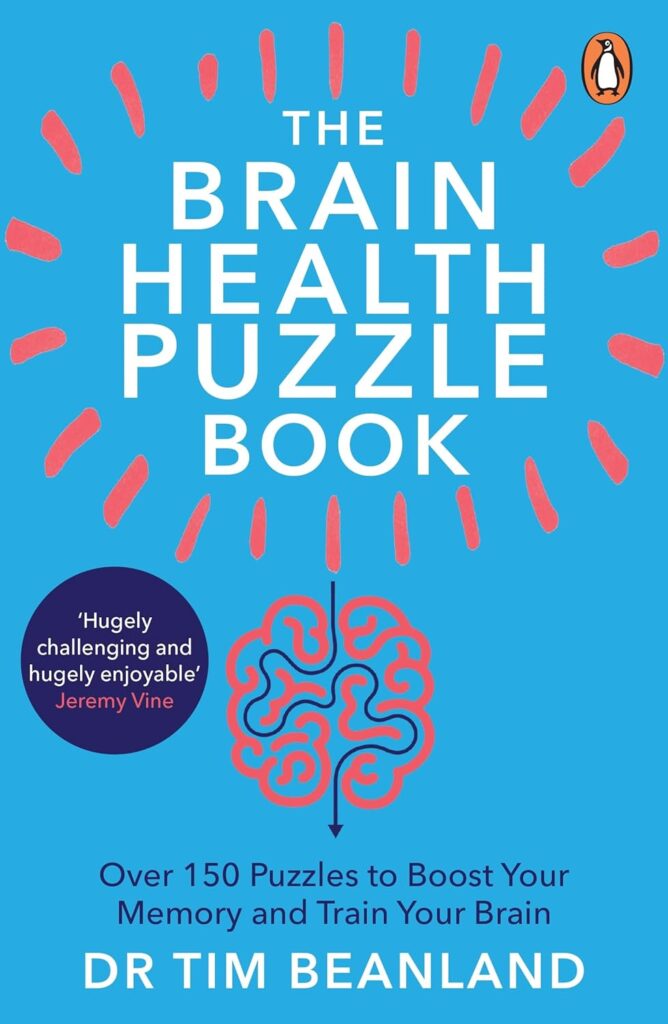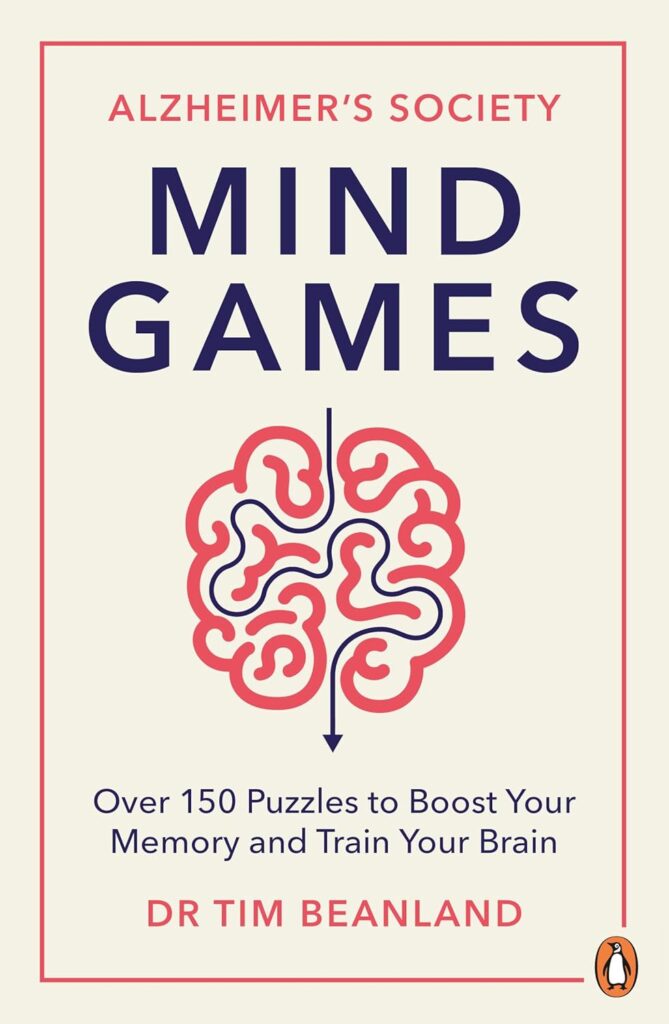The question of whether puzzle books can prevent or delay dementia has been asked by a lot of researchers, healthcare professionals, and the general public for years. While the concept of a simple, enjoyable activity that could stave off cognitive decline is compelling, the scientific evidence presents a more nuanced picture. The current research suggests that puzzle books may provide some cognitive benefits and potentially delay the onset of memory decline in certain cases, but they cannot definitively prevent dementia.
The Evidence for Puzzle Books and Cognitive Health
Research Findings on Cognitive Benefits
Several studies have demonstrated positive associations between puzzle engagement and cognitive function. A landmark study from the University of Exeter and King’s College London involving over 19,000 participants found that adults who regularly engaged in crossword puzzles and Sudoku performed cognitively equivalent to individuals 8-10 years younger in various cognitive domains[1][2]. The more frequently participants engaged with these puzzles, the better their performance on tasks assessing memory, attention, and reasoning.
Similarly, a randomized controlled trial published in NEJM Evidence found that crossword puzzles were superior to computerized cognitive games in improving cognitive function among older adults with mild cognitive impairment[3]. Participants who trained with crossword puzzles showed greater improvements on cognitive assessments both at 12 weeks and 78 weeks compared to those who used brain training games.
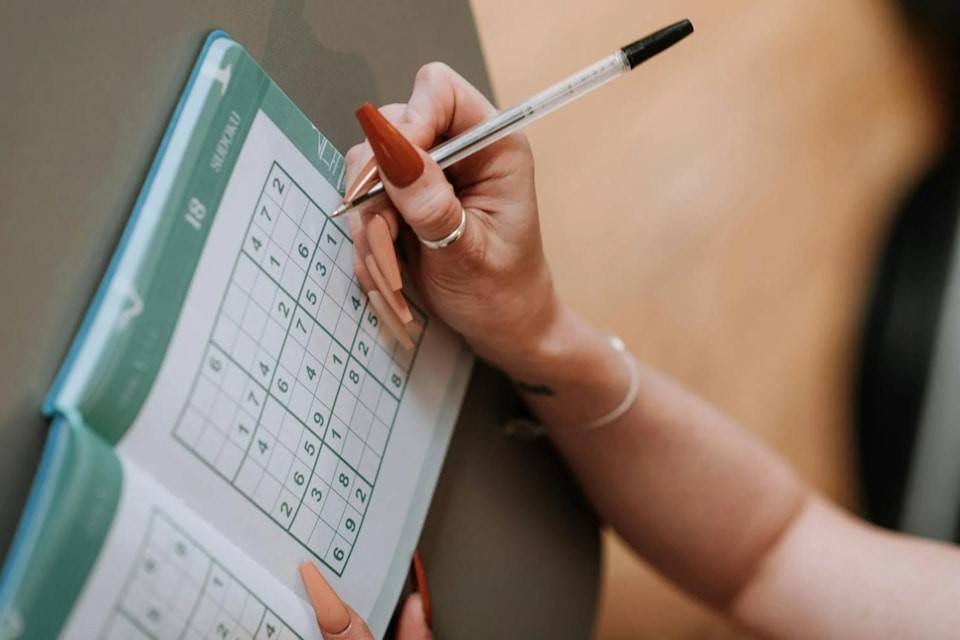
The Bronx Aging Study: A Critical Finding
One of the most significant pieces of evidence comes from the Bronx Aging Study, a 20-year longitudinal research project. This study found that crossword puzzle participation delayed the onset of accelerated memory decline by 2.54 years in individuals who eventually developed dementia[4][5]. This finding is particularly important because it suggests that puzzle engagement may not prevent dementia entirely, but could potentially delay its symptomatic onset.
Understanding the Mechanisms: Cognitive Reserve Theory
The theoretical foundation for puzzle books’ potential benefits lies in cognitive reserve theory[6][7]. This concept suggests that individuals who engage in mentally stimulating activities throughout their lives build up cognitive resources that can help them better cope with brain pathology. Dr. Joe Verghese from Stony Brook University explains that the more “mental muscle” an individual cultivates, the more robust their defense against dementia becomes.
Research has shown that people with higher cognitive reserve can better withstand the effects of brain damage before showing symptoms[8]. This doesn’t mean the underlying disease process is prevented, but rather that the brain has developed alternative pathways and compensatory mechanisms to maintain function despite pathological changes.
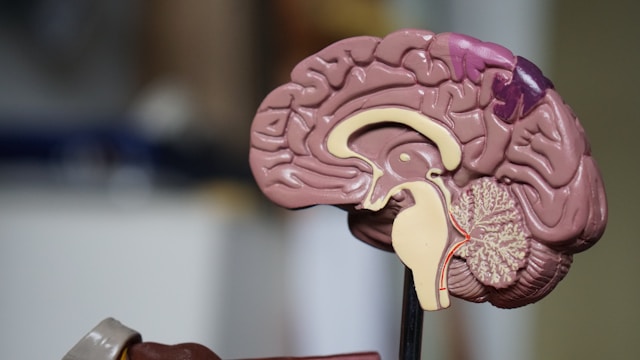
The Limitations and Criticisms
Mixed Scientific Evidence
Despite promising findings, the research on puzzle books and dementia prevention has significant limitations. A comprehensive Scottish study published in the BMJ followed 498 individuals born in 1936 and found that while puzzle engagement boosted mental ability throughout life, it had no effect on the rate of mental decline associated with aging[9][10][11]. The researchers concluded that puzzles may provide a “higher cognitive starting point” from which decline occurs, but they don’t prevent the decline itself.
Methodological Concerns
Several methodological issues plague the research in this area:
- Correlation vs. Causation: Most studies show associations rather than proving that puzzles directly cause cognitive benefits[12].
- Selection Bias: People who engage in puzzles may already have better cognitive abilities or healthier lifestyles overall[12].
- Lack of Control Groups: Many studies don’t adequately control for other factors that might influence cognitive health[13].
Regulatory Scrutiny
The brain training industry has faced significant regulatory action. The Federal Trade Commission has imposed substantial fines on companies like Lumosity ($2 million) and LearningRx ($200,000) for making unsubstantiated claims about their products’ ability to prevent dementia or cognitive decline[14][15][16]. These actions highlight the gap between marketing claims and scientific evidence.
The Broader Context: Multidomain Approaches
Beyond Puzzles: Comprehensive Dementia Prevention
Current research strongly suggests that multidomain interventions are more effective than single activities for cognitive health[17][18][19]. The World Health Organization identifies several evidence-based strategies for reducing dementia risk[20]:
- Physical exercise
- Cardiovascular health management
- Healthy diet
- Social engagement
- Smoking cessation
- Moderate alcohol consumption
- Quality sleep
The Role of Physical Activity
Studies consistently show that physical exercise may be more beneficial for brain health than mental exercises alone[21]. A University of Edinburgh study found a strong correlation between physical activity and reduced brain shrinkage, while mental activities like crosswords showed no such protective effect against brain aging[21].
Specific Types of Puzzle Activities
Crossword Puzzles vs. Other Activities
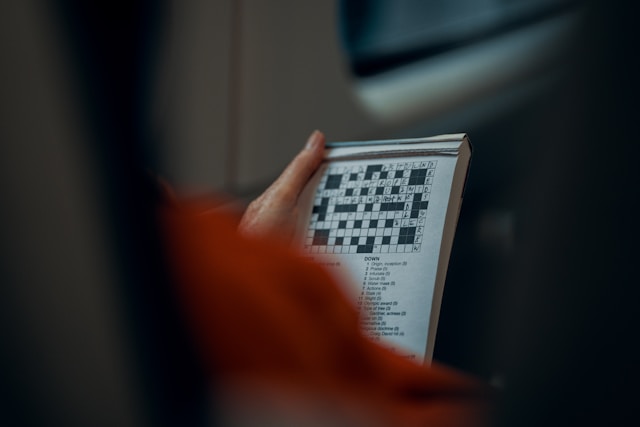
Research suggests that different types of cognitive activities may have varying effects. Word puzzles, particularly crosswords, appear to engage multiple cognitive domains including language processing, semantic memory, and executive function[3][22]. A study found that crossword puzzles specifically utilize vocabulary and problem-solving skills that may transfer to everyday cognitive tasks[22].
Jigsaw Puzzles and Visuospatial Function
Jigsaw puzzles have been shown to engage multiple visuospatial cognitive abilities simultaneously[23]. Research indicates that long-term jigsaw puzzling may have positive effects on cognition, but short-term engagement (less than 30 days) doesn’t provide clinically relevant cognitive improvements[23].
Practical Implications and Recommendations
What the Evidence Suggests
Based on current research, puzzle books may:
- Provide cognitive stimulation that could contribute to cognitive reserve
- Potentially delay the onset of memory decline in some individuals
- Improve specific cognitive skills related to the puzzles themselves
- Offer an enjoyable and accessible form of mental exercise
However, they likely cannot:
- Prevent dementia entirely
- Reverse existing cognitive decline
- Provide comprehensive cognitive protection alone
A Balanced Approach
Healthcare experts recommend that puzzle books should be part of a broader lifestyle approach to brain health[20][24]. The Alzheimer’s Association suggests that while cognitive activities like puzzles may be beneficial, they should be combined with:
- Regular physical exercise
- Social engagement
- Proper nutrition
- Cardiovascular health management
- Adequate sleep

Commercial Puzzle Books and Programs
The Market Response
The interest in cognitive health has led to a proliferation of puzzle books specifically marketed for brain health. Publications like “The Brain Health Puzzle Book” by Dr. Tim Beanland from the Alzheimer’s Society include over 150 puzzles designed to target different cognitive areas. These books often combine traditional puzzles with expert insights on brain health science.
Quality and Effectiveness
While commercial puzzle books may provide cognitive stimulation, consumers should be wary of exaggerated claims about dementia prevention[28]. The most effective approach appears to be using puzzles as one component of a comprehensive brain health strategy rather than relying on them as a standalone solution.
Future Research Directions
Ongoing Studies
Research in this area continues to evolve. The World-Wide FINGERS Network, launched in 2017, is conducting multidomain intervention studies across multiple countries to better understand optimal dementia prevention strategies[19][29]. These studies are examining how cognitive activities, including puzzles, fit into broader prevention frameworks.
Personalized Approaches
Future research is likely to focus on personalized dementia risk reduction strategies[30]. This may include determining which specific cognitive activities are most beneficial for different individuals based on their risk profiles, genetics, and lifestyle factors.
Conclusion
The evidence suggests that puzzle books can be a valuable component of a brain-healthy lifestyle, but they are not a magic bullet for dementia prevention. The most honest answer is that puzzle books may help delay cognitive decline in some individuals and contribute to cognitive reserve, but they cannot prevent dementia on their own[31][20].
The key to cognitive health appears to lie in a multidomain approach that includes physical exercise, social engagement, proper nutrition, and yes, cognitive stimulation through activities like puzzles[17][18]. While working on crosswords, Sudoku, or other puzzles may provide cognitive benefits and is an enjoyable way to spend time, it should be viewed as one element of a comprehensive strategy for maintaining brain health as we age.
For individuals interested in using puzzle books for cognitive health, the research suggests that regular, long-term engagement is more beneficial than sporadic use[4][23]. However, the most important message is that maintaining cognitive health requires a holistic approach that addresses multiple risk factors and promotes overall well-being throughout life.


